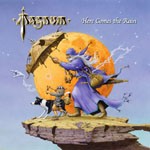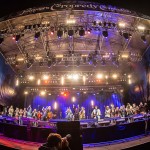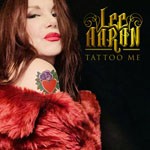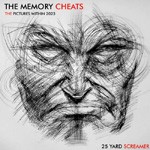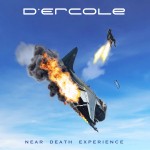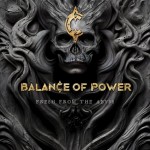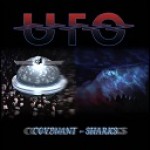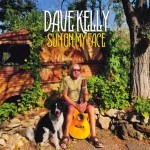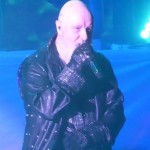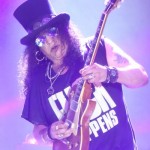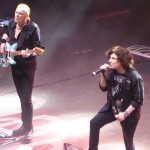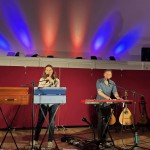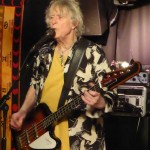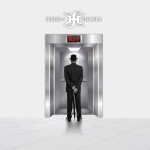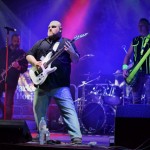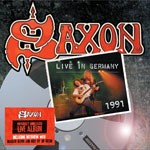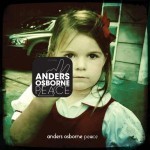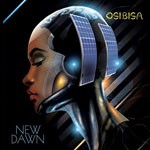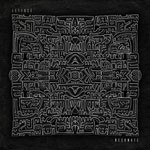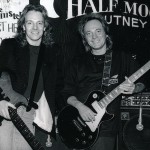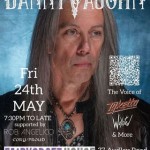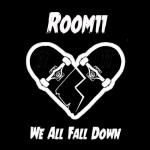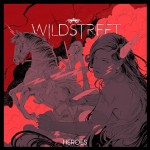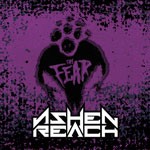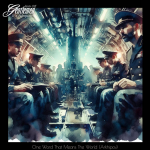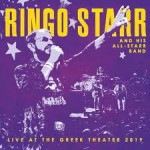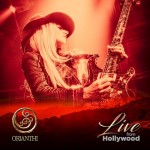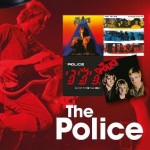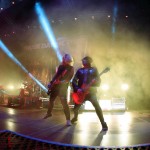Share the post "Interview with DAVID BOWER (Hell) – 16 January 2014"
Technically proficient, passionate, flamboyant, entertaining…these are words that perfectly describe the Nottingham-based Heavy Metal institution Hell – a band which has managed to win the hearts and minds of riff lovers across the globe over the last three or so years. Following the culmination of a successful European tour in support of Amon Amarth, I managed to arrange an interview with vocalist David Bower, during which I tried to find out what it is that makes this band so special. During what turned out to be a half hour chat, not only did I manage to achieve exactly that but I also received an interesting insight into the magic world of the man who fronts the band when sporting a crown of thorns over his corpse-painted face.
By Yiannis (John) Stefanis.
- David, I want to thank you first and foremost for taking the time to do this interview with us. I have been really looking forward to having a nice chat with you as I have been mightily impressed by “Curse & Chapter”. I love it when bands give things another go, especially when we are talking of bands as worthy as Hell are.
David: Oh, thank you very much.
- I actually asked to conduct this interview with you because I truly believe that your personal involvement in the band has been integral to the band’s success. I will also use your help along the way to draw comparisons between Hell era 2013 and that of the early to mid 80s.
David: Ok, yes. Well, as I have seen most of the shows that Hell ever did, and I think that they only did around fifty in the first place. There weren’t many Hell gigs performed back in the day because they would rehearse a hell of a lot of time and put as much money into their shows as they could so they did not play live very often. I knew Dave Halliday’s (original guitarist/singer) previous band Race Against Time because they used to play regularly with Kevin’s (Bower: guitars) previous band which also contained Tyranny so I was very well versed in what they did and I guess that, growing up, Dave Halliday had a very big influence on me whether I realised it or not, I guess to the point that when I started doing the Hell material myself I instinctively found myself doing things that Dave did. This is something I had to think about it a lot as I didn’t want to become some kind of tribute; on the other hand, I kind of very ruthlessly went through what I was doing to make sure that I was honouring the spirit of what he did with Hell and not try in any way to copy it at all. It’s really coincidental that there are parts of my voice that are very similar to his but there’s nothing really that I can do about that (laughs).
- Is it accurate to say that, at that moment in time, your interest in Hell was purely because of your brother’s involvement only as a fan of the Heavy Metal genre or was it also because you were a fan of Heavy Metal in general?
David: Well both I guess. I mean, I always felt very strongly that Hell should have been huge really and I have bored people to death over the years telling them about my brother’s band that should have been the next big thing and moaning about all these bands that did and were simply not that good (laughs). Then, all of a sudden, I was kind of faced with the prospect of doing that thing myself which was a bit of a turnaround but yeah: I’ve always loved the band, I’ve always loved the music. I actually always had recordings of the band and I’ve always played them quite regularly really so I was indeed a fan. That’s why when the chance of working with the band came up I jumped at it really.
- As a singer, as a front man, you fit the bill perfectly. You are a true showman, you have much confidence and swagger, an impressive vocal range which comes across as good live as it does on the band’s recordings so it is quite surprising to realise that, all those years prior to receiving an invitation from Hell to join their ranks, you were not actively involved with any other professional Metal band – unless, of course, there’s something I missed during my search.
David: Well, no there’s not. I mean, I’ve always messed around in bands, just for fun, as people always seemed to like my singing but for the last twenty years I have been heavily involved in theatre. I am still an actor, it’s not like I used to be one, so basically I’ve not really had the time to pursue music properly because I’ve been very busy as an actor. Maybe nine months of the year I will be away from home working in the theatre and, you know, it doesn’t lend itself to being in a band really (laughs). I guess that if I had stayed in one place during any one period of time I may well had formed a band and indeed that’s what happened. When I met my present partner and we decided to sort of settle down and be serious, I was at home more and as soon as I was at home more I started looking for things to do that I couldn’t do from home. I got in contact with some local bands, one of which I still play with for fun. But I never seriously considered taking things any further than that until the Hell thing came up and then everything with Hell has been a surprise, you know? (laughs) We literally don’t know what will happen next, which is great – I like that feeling!
- Ok, let’s take a trip together back to the period between 2010-2011, the time that your first album “Human Remains” was being created. I am sure that it was during that period that you were asked to make a very serious decision which involved prioritising Hell over other theatre-related activities. You obviously made a decision and it happened to be the right one as far as I’m concerned! Still, that must have been a very tough position to find yourself in – having to choose between two different ‘callings’, right? I know how theatre works: the moment you stop making yourself available, opportunities stop knocking at your door.
David: Yes, you’re right. There’s indeed a certain element to that but, fortunately, I became very involved in a local theatre in Nottingham so, even if I’m not available, I go and do a lot of work in the theatre for them because we work on new plays and we do workshops and I am also involved with a lot of new writing there. I am a local actor so I can go and do all sorts of different characters when they want to perform any sort of play. If there’s anything available that I can do in the theatre they simply ask me to do it. So, I’ve been doing jobs here and there which kind of keeps me in touch with what’s happening, but in terms of being in touch with what’s happening in the rest of the country in theatre I have not done anything for a couple of years now. It is tough because actually, your agent wants you to be in circulation. However, because what Hell are doing is visible, people know what I’m doing and in many ways it makes people more interested because it’s a side of me that they’ve never seen. Also, I’m a Shakespearean actor mostly and most of the parts that I’d like to play I am actually not old enough to play yet, so whatever happens with Hell in five or six years time, I can draw back in and perform these parts. I am looking forward to that really.
- Excellent point – I mean, there’s ample footage to showcase what you are capable of doing with Hell, especially as there are plenty of theatrical elements in your shows. It is interesting, however, to think that, in this day and age, one’s involvement in a Heavy Metal band can be a positive addition to one’s CV, whereas thirty years ago this would have been something to keep firmly under wraps. It’s really impressive how things have changed in that respect.
David: Yeah, absolutely. Actually, I have been offered some theatre work directly as a result of some recordings that the band has made. I’ve been offered some radio recording jobs because of what I can do with my voice – things that they’ve never heard me do before. Even people who’ve known me for a long time, they’ve heard me do all sorts of things but they’ve never heard me do that (note: Hell). They already think that I’m quite versatile but when they realise that I can do that as well it makes you kind of grow in their estimation.
- When you began working with the rest of the band for “Human Remains”, your initial involvement was to provide backing vocals for certain tracks and, along the way, you were promoted to lead singer. While these early jams were taking place were you yourself surprised by what you discovered in your own voice?
David: Yeah. I mean, I heard the recordings with Martin Walkyier (ex-Sabbat, ex-Skyclad) singing on them and, obviously, he was very good but when Andy (note: Sneap / guitarist & producer) asked me: “What do you think?” I replied: “I’ll be honest: it’s great but it doesn’t sound like Hell”. He said: “Ok, you should have a try”. So, I tried and I was surprised to discover that when I sang those songs the end result did sound like Hell but I could not quite put my finger on why. I mean, I was not copying Dave; there’s something in the tenor of my voice that just felt right and I think that I’m pretty honest because I’ve done a lot of recording work and you know when you’ve got a take right or not. Sometimes I have auditioned for things and the person that they’ve eventually chosen for the job was the right one – something that I’ve realised soon after the process was finished as listening back to what I’ve done I realised that I wasn’t right for it. With Hell I just thought: “Actually I am right for this” (laughs). It all just went from there.
- Operating on a specific theme or concept has always been a very important tool when it comes to promoting one’s music. Kiss had their make-up, Iron Maiden their Eddie…the list goes on and on. In this day and age, employing such concepts can be a really tricky business to say the least, with many bands making a parody of themselves rather than indulging in concepts of real artistic value. You guys, to your credit, have managed to create a unique and finely balanced show for us. Your music is rhythmically complex but infectiously catchy, your stage props add much atmosphere and character to the performance without interfering too much…everything is well calculated and accurately measured. That suggests that many hours have been spent working on the finest of details in order to provide the best possible show for your fans, right? Is the process as technical as I make it sound or do such things happen naturally for you guys?
David: I think that the right answer is: both. One of the most important things about this band is the fact that you have several people who provide a lot of input. Anybody can play anything when we’re jamming and working things out. Anybody can bring ideas and we try everything because sometimes the strangest sounding ideas are the ones that, for some reason, just work. Then we have Andy Sneap in the band who’s extremely good at spotting how different pieces should fit together in order to make them work as a whole. There’s indeed a lot of discussion, a lot of…I would not say arguing – as this is not what we do – but a lot of disagreement with people saying: “I think this, I think that”. Sometimes lines of enquiry, if you like, get followed until they are exhausted and sometimes you get all the way down the line of thinking and it doesn’t work when you get to the end of it, but it’s important to pursue it as far as it will go. Andy is very good at knowing which direction to kind of steer things in because he’s so experienced – he’s got like a mental shorthand and he really understands what works and what doesn’t. I guess that the thing that’s surprising with us is that I and Kevin have both suggested things that he (note: Andy) didn’t think would work but they have. I think that this creates an interesting dynamic in the band because, you know, it’s the quirkiness of what can get into Hell’s music sometimes that gives us our character.
- I guess that for a guy who’s been involved in music as much as Andy has that’s very important. I believe he’s actually in the studio recording another high profile band, as we speak, right?
David: He is. I think that he’s got Saxon, Exodus…does he have Exodus? I think so. Then he’s got Accept…he’s got three or four bands in a row at the moment so yes – he’s very busy.
- A guy like that who lives and breathes music 24/7 must really need any motivation he can get from his band mates, just so that he can keep his interest in his own band going. The fact that he does get the motivation to pick up his guitar and come up with the massive riffs and melodies that characterise the band’s latest work is proof of a great climate within the band’s ranks. It also feels like you have avoided any unnecessary splits between an ‘old’ and a ‘new’ camp as a result of the dynamics in the creation of your music.
David: Yes, I think so. I mean, the writing dynamic particularly on the new album between me, Andy and Kevin in particular, with other ideas coming from Tim (Bowler: drums) and Tony (Speakman: bass) is interesting. All three of us think slightly differently, so the kind of direction and attitude that one of us will bring in is different from what the other two would have thought of – yet, we’ve all been long enough in the band to know whether what we come up with sounds like Hell or not. That’s kind of our rule: there are ideas we had for the new album that we haven’t used – ideas that were really good but they just weren’t Hell. We don’t quite know why it wasn’t Hell – it just wasn’t (laughs). Anything that didn’t have the right feeling, however good it was, got shelved.
- It makes sense to me. When a band reaches such high quality standards you have to then become twice as careful not to undermine all your hard work with choices that are below par.
David: Absolutely. I mean we knew what was at stake with the second album and it was crucially important that we got everything right. On the other hand, we didn’t want to stand so long working with it that we ended up working it to death and killing the initial energy of what came in with the ideas in the first place. I know bands who do that; who work so hard on their album, who polished it so much that it did not mean anything anymore (laughs). I think that we avoided that.
- I most certainly concur. I am curious of what your response will be to the following question: what is it that Hell, anno 2013 have that managed to really capture the attention of fans and media alike that the band’s 80s incarnation didn’t?
David: (sounding genuinely baffled) I don’t actually know! I mean, with the first album we released, the music was exactly the same. If you hear the demos, the arrangements are not that different. Obviously the production and the sound of the band, which is down to Andy, is far superior. I guess that Andy felt that there was a gap in the market for something that sounds as fresh as the Hell stuff does and he was right because you literally put a Hell track on and you know that it is a Hell track straight away! You know it’s Hell before the singing starts – when the singing starts you definitely know who it is! That is not something that you can say about many bands nowadays.
- Quite true.
David: So, I am guessing that Hell’s music has an original flavour to it because you know who it is straight away rather than thinking: “Oh, it’s another metalcore band”. When people first listened to Hell, they really couldn’t tell what it was so they really had to go and find out – whether they liked it or not. I don’t know, but it does have a genuine sound to it.
- For the point of view of a fan who has been listening to all kinds of Metal for a significant number of years, what I have observed these last ten years or so was that labels were mainly targeting young bands who are quite capable of flexing their technical muscles but which have forgotten that the essence of any song is in the quality of the melody on offer. What I really like about you guys is the fact that, though a technically gifted band, you always put emphasis on the melody. This applies to every single song from “Curse & Chapter”.
David: Thank you for acknowledging that.
- I saw you guys recently at the Forum supporting Amon Amarth and Carcass and I was fairly disappointed by the fact that you were only given a twenty minute slot to perform your magic. It is baffling how the best band on the bill, hands down, ended up playing the shortest set. Would you say that, even under such circumstances, the experience of performing on that tour has been beneficial for the band?
David: Yes, definitely. I would say that we won something everywhere we went. The nice thing about doing that tour, and the reason we did it, is because we played for people who would not normally come to see us because the people who like these bands (note: Amon Amarth, Carcass), generally speaking, wouldn’t go out to see anything remotely traditional. They tend to be loyal to that specific style of music and, especially in Germany, people who go to an Amon Amarth show only really want to see Amon Amarth performing – they don’t want to see anybody else. Even Carcass suffered in some places and I would actually say that we went down better than Carcass did and the Carcass guys say that themselves. We were clearly very unexpected and the nice thing was that people had clearly no idea who we were, which is terrific because the point of doing this tour was to sell ourselves to new people and literally by the end of our half hour set we’d got them! The reception we had was terrific everywhere and I think that we surprised the hell of a lot people out there.
- Pun intended, right?
David: Definitely (laughs). There were places where people went literally bonkers! We had a lot of people contacting us after that tour and people ‘hitting’ our videos online. I think that, overnight, one Hell video went over 60,000 hits on that tour, so…we got a lot of people’s attention on that tour and I think that half an hour is enough to do that. It was a relentless set (laughs) and when we get an hour in our hands we can play with them more – we’ll get to do the other things we do when we slow things down and become more moody. When it gets dark we get to use the atmosphere a bit more and we’ll get them with that too, I hope.
- I have been living in the UK for almost twelve years now and I think I have developed a good understanding of how British people think and behave. I would describe Hell as a quintessentially British band: the humour, the sarcasm, the choice of words to bring across a message – all attest to this. Now, how does a band like you manage to become relevant to people whose ethnic, cultural and even religious background is so different than yours?
David: I think that the world is so well versed to British film. You have British films, British TV series and sitcoms that are being watched all over the world. There’s certainly an “Englishness” in what we do and we certainly push that because it is very important to us to sound English. When I use my vocals, I always make sure that it sounds English because we simply don’t want to sound like an American band. Even European bands use vocalists who sound American which gives a kind of glossy sheen to whatever they sing. There’s something about the English accent…I suppose with my Shakespearean background, people who have seen a Shakespearean play and they have heard the accent they recognise this wordy quality and appreciate the fact that there’s something very English about it. I think that this accent is quite sinister in the same way that Latin is when used by the Catholic Church. They used Latin, amongst other reasons, for the way it sounded. It excluded people who couldn’t speak it and the way the priests made it sound was very articulate and very arresting to listen to. I try to do the same thing with the Hell lyrics. I think that the way we craft our words is arresting, it’s designed to be heard and makes people think: “Wow – this thing sounds important”! I think that all that is there.
- You know, David, it’s also worth mentioning here how, in most Hollywood movies, the role of the villain has always been given to British actors. Nowadays, every top quality US series like “Rome” or “Game of Thrones” features predominantly British actors. Times have certainly changed, right?
David: Yes, absolutely (laughs). I think it’s the same with Sci-Fi movies of which I am a massive fan. I always say that the British classical actors are the best in Sci-Fi movies because they can make that technical dialogue sound real. Jean-Luc Picard by Patrick Stewart is a classic example and Ian McKellen, I know Ian McKellen and he’s a friend of mine, when he says those lines in “Lord Of The Rings” you simply believe him! I have just seen the second “Hobbit” film and he, to me, feels so much better in that film than the rest of the cast because, even though the cast is English, they have a TV background – not the same like the big classical actors like he is and there is a massive difference to me.
- I have been browsing through a lot recently, both on the Internet and printed mags, and I have found out, much to my satisfaction, that “Curse & Chapter” has been voted by many fellow-journalists as album of the month and/or the year – something I totally support as I also find that it has been one of the most important albums for 2013. I will also say that “Darkhangel” is one of the best Heavy Metal songs in my quite extensive music collection.
David: Wow, thank you very much!
- You must agree with me in saying that you’ve raised the standards quite high with your second studio album so any future release, which hopefully will not take too long to come to life, will come under the microscope by fans and journalists alike. So, what do you think will happen next?
David: What happens next? Well, we started writing…well, Kevin is writing new material, and I have about nine songs in various stages of lyrical and kind of conceptual completion in my head – things that we didn’t even look for “Curse & Chapter” because we had so much material available already. Back then I thought that I was not going to try and stick things in the album just for the sake of it as Kevin and Andy already had various demos so I said to them: “Let’s finish what you started and anything new that’s needed to be added I will add it and we will look at the stuff that I’ve got next time because we were aware that we were going to need only new songs for our next album. In many ways, I am looking forward to the next album possibly even more because of the challenge of creating a whole album completely from scratch is something that we haven’t done yet. It was nice to have a ‘fallback position’ with several old songs that we already knew were great so if we were to do these songs justice then we had half a great album already. We were pretty confident that we were going to do justice to these songs and they did end up sounding really good – that’s the way we went with it. Now, there’s plenty more material in the pot, as it were, so yeah – when Andy’s finished with his studio commitments we will start demoing stuff and it will be as and when. We will try to get as many demos together as possible over the next year and a half so, when we actually do the recording, it won’t be six weeks in the studio, twenty four hours a day (laughs) which is what the last album ended up being. It was, actually, kind of pushed forward by the tour. We tried to get it finished before the tour and, you know, this did not happen because…you know, it just didn’t (laughs).
- Sometimes things need to take their time to happen for the reasons that they do.
David: Indeed.
- David, Hell have been quite successful in what they have done so far. Have you felt that this state of affairs has perhaps put you under any pressure? Do you have, for example, Nuclear Blast trying to push certain ideas as far as what you should be doing next? How do you, or any band like yourselves for that matter, avoid falling into the trap of creating something predictable just to keep a certain level of popularity going rather than pushing your creative boundaries even further?
David: Well, let’s just say that we’re aware of our strengths and we are aware of what it is about us that the fans like. When you are truly aware of such things it is then when a band is in danger of recording the same album over and over again which, you know, can be quite successful for certain people but we’re not interested in doing that. On the other hand, we do know that we have a ‘house style’ and if we travel too far from that style we can end up losing contact with the people who liked us in the first place. That’s the challenge for me: we have to push things in different directions but keep the Hell style intact. I think that with songs like “Darkhangel” we did that very successfully. It’s definitely a Hell song but we introduced some new elements through it and I think that, having done that, we have created a stepping stone whereby we can probably move things further. I mean, we have already taken our fans, at least partly, on a new journey with “Curse & Chapter” and as long as we don’t get too far and disappear into our own backsides we will be OK (laughs).
- Would you say that you are in the privileged position where you can actually turn and say to a label like Nuclear Blast: “Mind your own business and let us do what we do best” when they try to interfere with things?
David: Well, they don’t actually. They are very, very good. They just say to us: “Do what you do and when you’re ready let us know”.
- Now, that’s a great position to be in.
David: It’s terrific! The only time when they might say: “We need it now” is when we say to them: “We’re nearly ready” and they probably want to gear up the release date as there are certain times of the year when it’s much better for them to release an album than others. From a business point of view, you know, that is the only time where they might put pressure on us at all. They’re a fantastic company in that respect – they really are.
- David, much as I would love to continue talking to you for hours about your great band I appreciate the fact that we have been chatting for a while now so I will let you off. Thank you very much for talking to us and I wish you all the best for all current and future endeavours – both in theatre and music.
David: It has been my pleasure.
Featured Artist: JOSH TAERK
Since early 2020 Josh has been entertaining us with exclusive monthly live sessions, streamed via Facebook.
In 2023 he signed a recording deal with Sony in Canada and released a new single on 15 September.
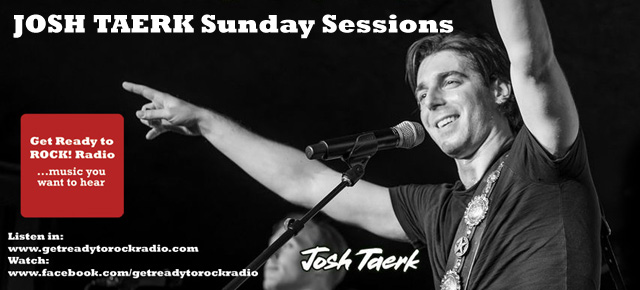
Latest session: Sunday 14 April
Check out videos here: https://www.facebook.com/getreadytorockradio
David Randall presents a weekly show on Get Ready to ROCK! Radio, Sundays at 22:00 GMT, repeated on Mondays and Fridays), when he invites listeners to ‘Assume The Position’. The show signposts forthcoming gigs and tours and latest additions at getreadytorock.com. First broadcast on 7 April 2024.
UK Blues Broadcaster of the Year (2020 and 2021 Finalist) Pete Feenstra presents his weekly Rock & Blues Show on Tuesday at 19:00 GMT as part of a five hour blues rock marathon “Tuesday is Bluesday at GRTR!”. The show is repeated on Wednesdays at 22:00, Fridays at 20:00). This show was first broadcast 2 April 2024.
How to Listen Live?
Click the programming image at the top of the page (top right of page if using desktop)
Listen via Windows Media Player. Click or tap here and “open file”
Listen via other media player (eg. VLC) Click or tap here and “open file”
Get Ready to ROCK! Radio is also in iTunes under Internet Radio/Classic Rock
Listen in via the Tunein app and search for “Get Ready to ROCK!” and save as favourite.
More information and links at our radio website where you can listen again to shows via the presenter pages: getreadytorockradio.com
Power Plays w/c 15 April 2024
ENMY The Ledge (FiXT)
KAROBELA Get Hard (indie)
KATH & THE KICKS Neptune (indie)
THE BEE TELLERS River Poem (Black Sand Records)
LAUREN FREEBIRD Like A Bomb (indie)
Featured Albums w/c 15 April 2024
09:00-12:00 The Best of 2003-2023
12:00-13:00 The Best of 2003-2023
14:00-16:00 KATARINA PEJAK – Pearls On A String (Ruf Records)
To see our Tweets you need to be logged in to a Twitter account
Popular (last 10 days)
Share the post "Interview with DAVID BOWER (Hell) – 16 January 2014"

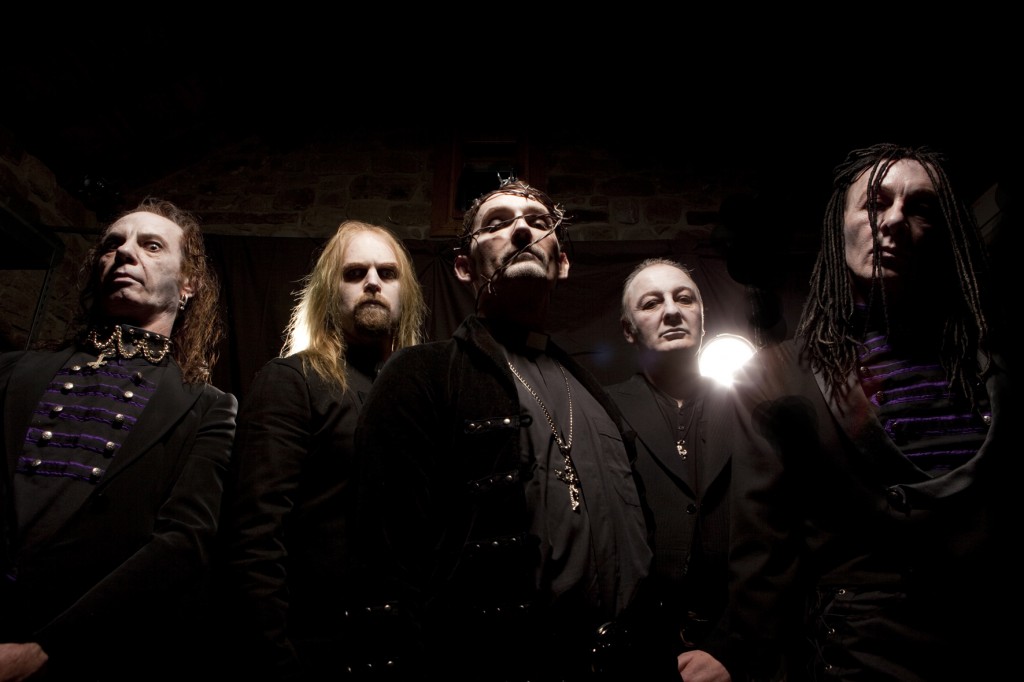
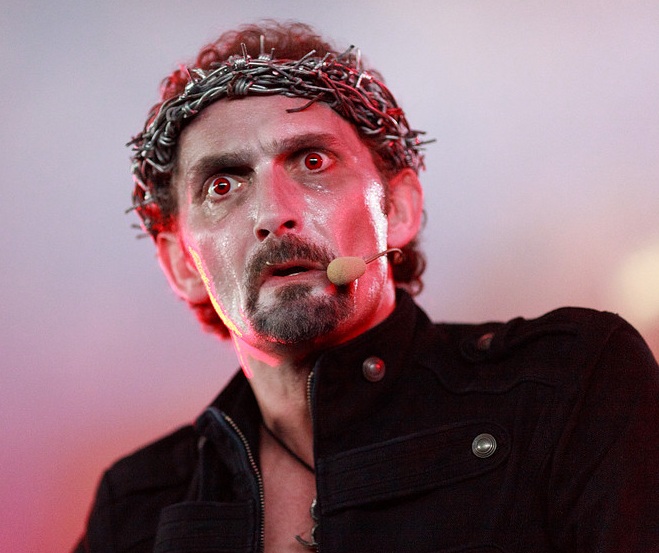
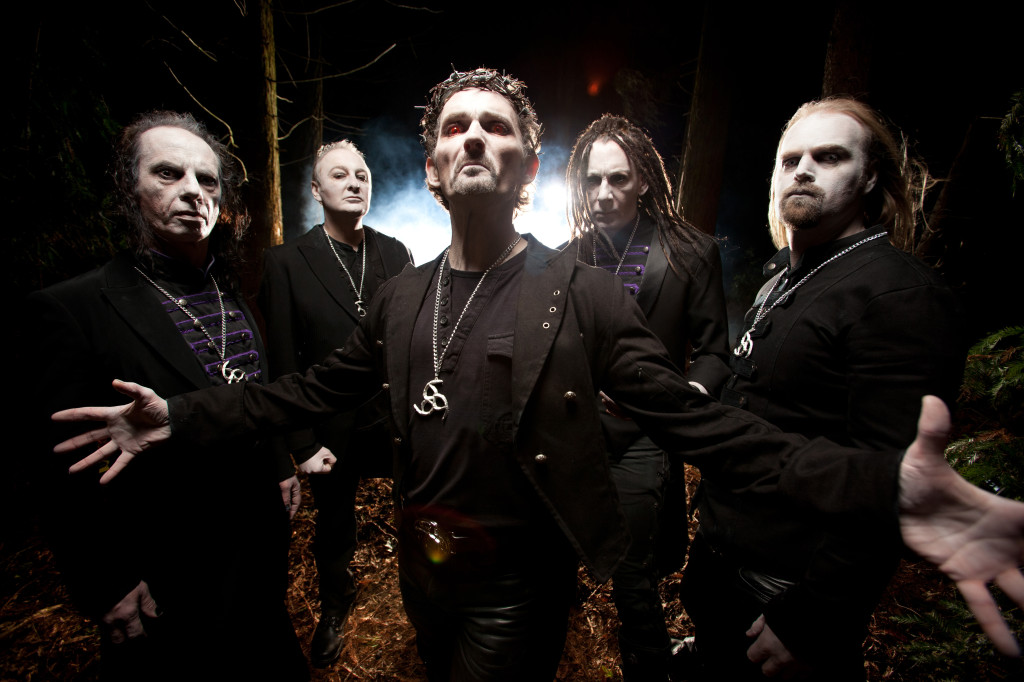
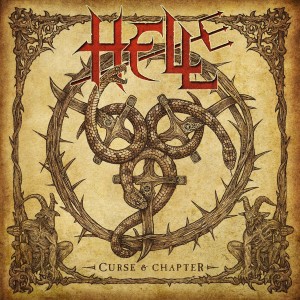

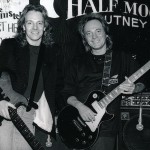

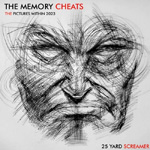
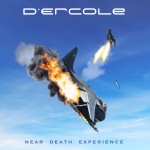
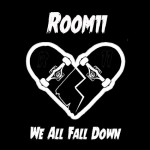
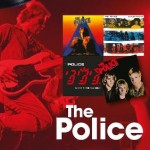
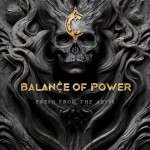
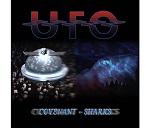
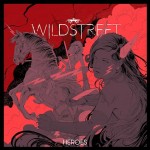
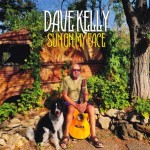
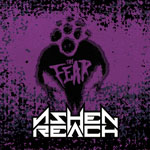
 PDF - you can delete unwanted sections
PDF - you can delete unwanted sections